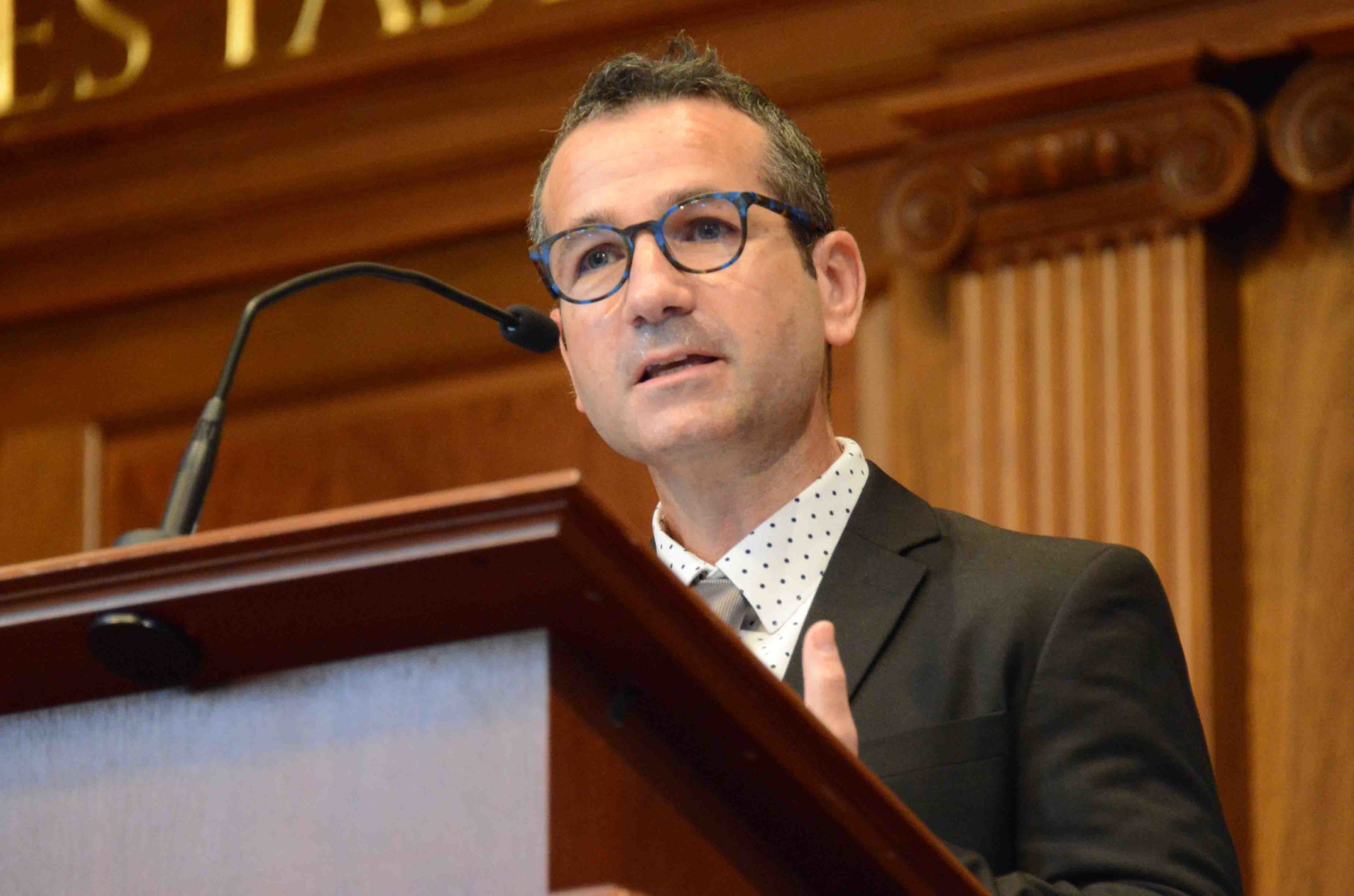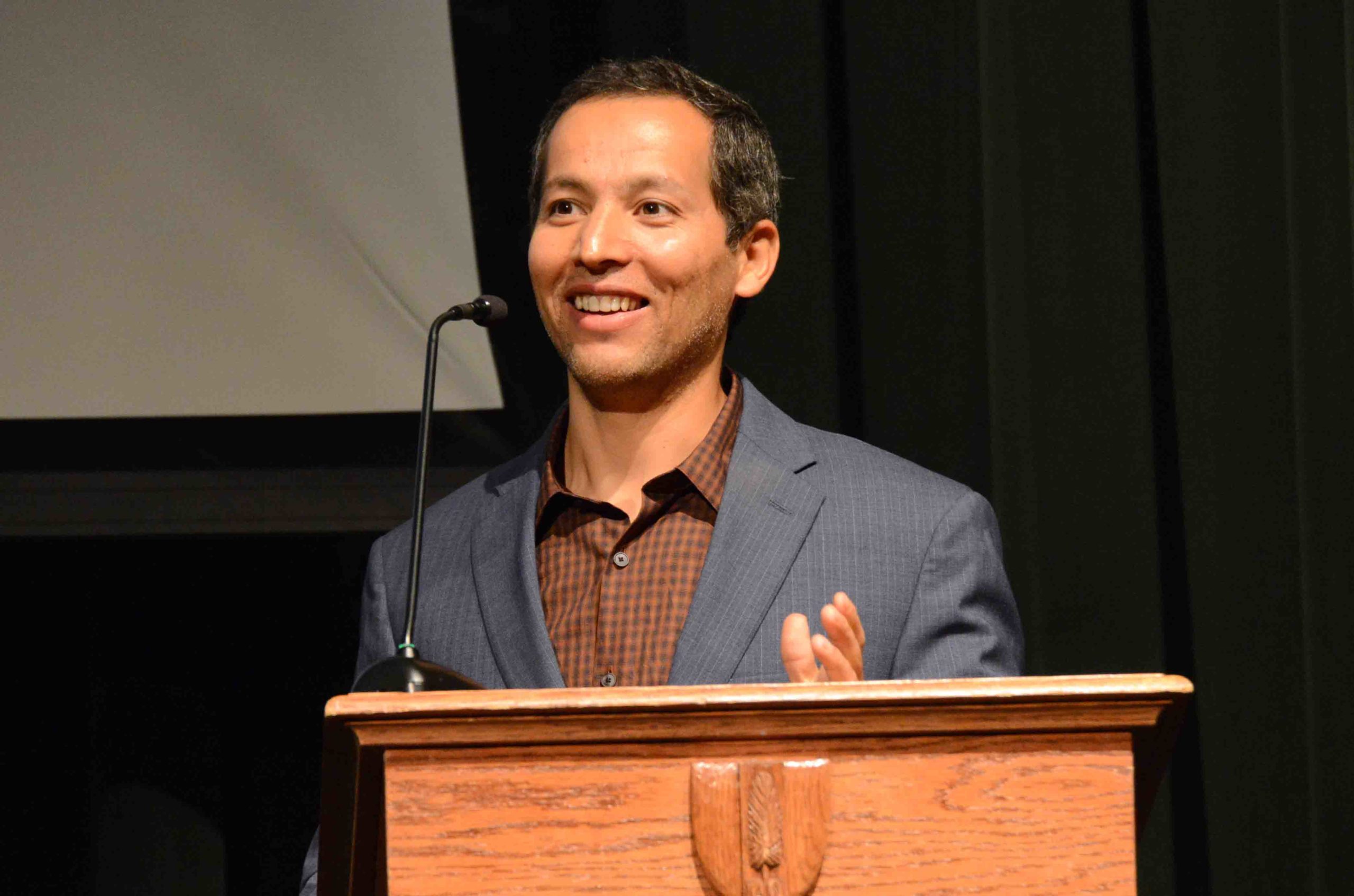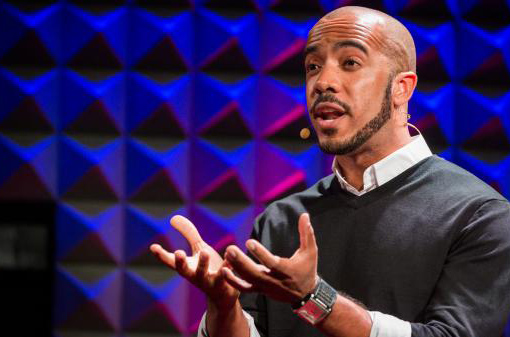On October 12, Dr. Javier Corrales—Dwight W. Morrow 1895 Professor of Political Science at Amherst College—visited campus as this year’s Jarvis International Fund Lecturer. This year marks the eighteenth annual Jarvis Lecture, named for the Reverend Tony Jarvis, who for thirty years led Roxbury Latin as its 10th Headmaster.
“A person who knows only one country knows no countries,” began Dr. Corrales, citing a quotation from sociologist Seymour Martin Lipset. “I am here to speak with you today about the importance of being internationally curious.” Dr. Corrales insisted that those who don’t seek the perspective of other countries, people, cultures, and languages are prone to exaggerating the pros and cons of their own home nation—in other words “a comparative perspective is critical for an informed analysis.”
Dr. Corrales’s research and teaching focuses on varied, but connected, topics: democratization, presidential powers, and ruling parties; economy, energy, and foreign policy; populism and democratic backsliding; and sexuality. Specifically, Dr. Corrales has published extensively on Latin America and the Caribbean.
“It is a commonly accepted belief that Latin American countries have had a hard time achieving democracy, and that in many ways is true,” Dr. Corrales began. “Some Latin American countries have made great strides toward democracy, but those countries are typically vulnerable and unstable, given their histories. I would argue, however, that this reality has helped to spur great innovations toward protecting that democracy.”
Dr. Corrales went on to talk about Latin American countries—in the face of their struggles for democracy—having developed measures such as inviting impartial, international arbiters to ensure that elections are fair and just; introducing presidential term limits, to keep at bay presidents who stay in office too long and become dictators; and introducing quotas to achieve a 40-50% female representation in democratic ruling bodies.
Dr. Corrales is the author of several books including Fixing Democracy, on Latin America’s penchant for constituent assemblies and the impact on presidential powers; and Autocracy Rising, about the recent Venezuelan transition to authoritarianism. His book Dragon in the Tropics, about the legacy of Hugo Chavez, was chosen in 2019 by both The Financial Times and The Guardian as essential titles to understand the crisis in Venezuela.
A regular contributor to the New York Times, he has published recent opinion pieces there on what the oil spill in Venezuela tells us about their politics; why former Latin American presidents have far too much power; and how the widespread solidarity in this summer’s protests in Cuba may hint at a long-awaited shift in its ruling Communist regime.
Dr. Corrales has taught courses all over the world, including in Amsterdam, Netherlands; Bogotá, Colombia; and Salamanca, Spain. In 2000, he became one of the youngest scholars ever selected as a Fellow at the Woodrow Wilson International Center in Washington, D.C. He has been a consultant for the World Bank, the United Nations, and the American Academy of Arts and Sciences. He has been a Fulbright Scholar twice, in 2005 in Caracas and in 2016 in Bogotá. He earned his bachelor’s degree in foreign service from Georgetown and his Ph.D. in political science from Harvard. Currently, Dr. Corrales is at work on two timely projects—one on populism and polarization, and the other on populism, religion, and LGBT rights.
“A lesson for the United States and other democracies is that it is critically important to both reinforce and reinvent the pillars of your democracy,” concluded Dr. Corrales. “There will always be both foes and champions of an equitable and just democracy, and those who care about preserving it have to be creative and fight to uphold it.”
Established in 2004, the F. Washington Jarvis International Fund Lecture has brought to campus several distinguished public servants and thinkers on foreign affairs—including economist Paul Volcker; Roxbury Latin alumni Ambassadors Richard Murphy and Mark Storella; Robert Gates, former Secretary of Defense; Lisa Monaco, homeland security advisor to President Obama; John Brennan, former Director of the CIA; Professor Bill Taubman, who spoke about Russian and U.S. relations over many decades; and, last year, Ambassador Harriet Elam-Thomas, who reminded us of the critical role of diverse perspectives in the work of foreign affairs.The fund is a generous benefaction of Jack Hennessy, Class of ’54, and his wife, Margarita. The Hennessys have, throughout their lives, represented an unusual engagement with other nations and cultures. Throughout their lives, too, they have generously provided the philanthropic wherewithal in order that others might come to know and appreciate our broader world. Through their generosity, hundreds of Roxbury Latin boys and teachers have been afforded the opportunity to travel to foreign countries over the years, developing new perspectives on many political, economic, historical, and cultural issues.





